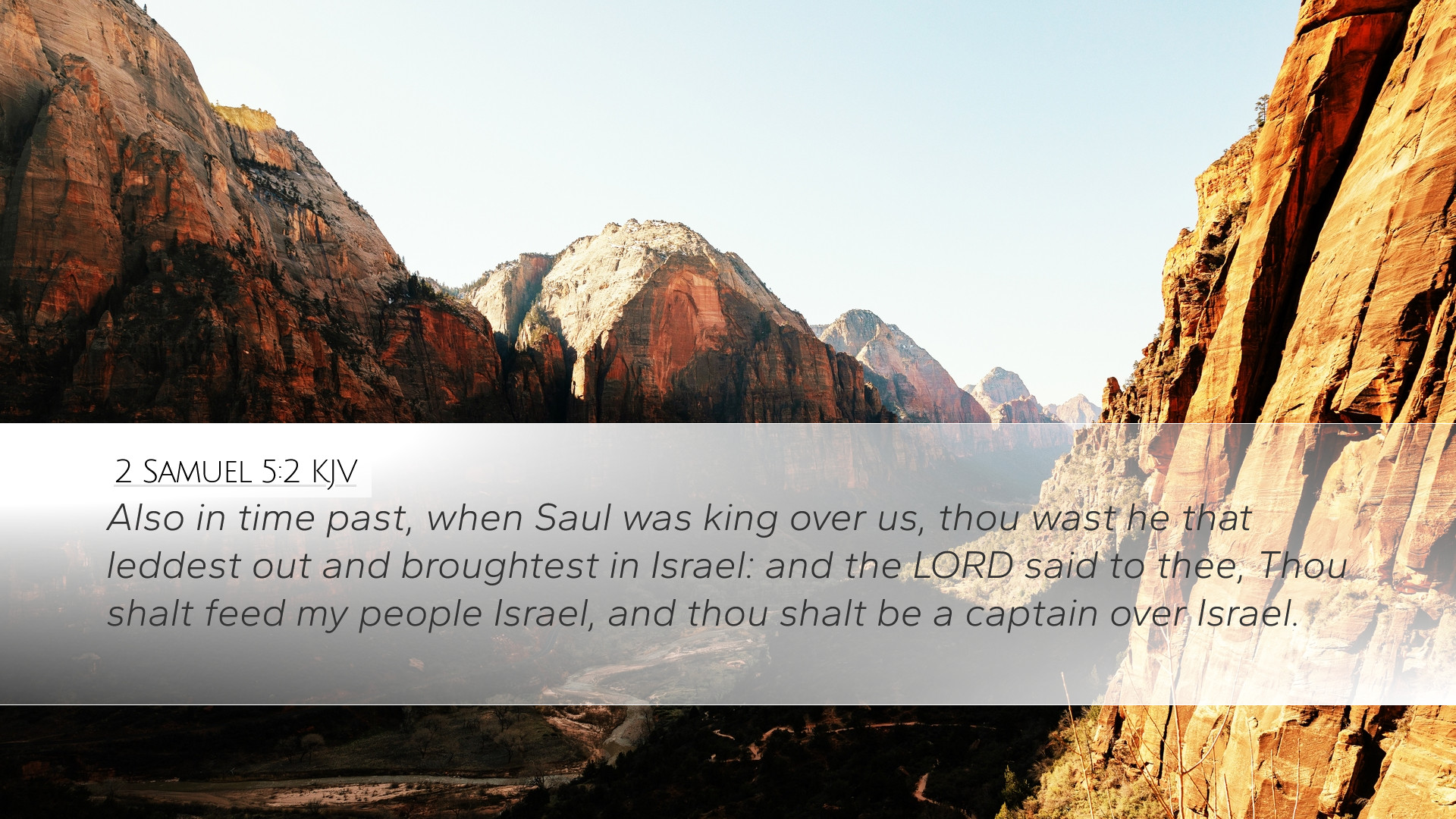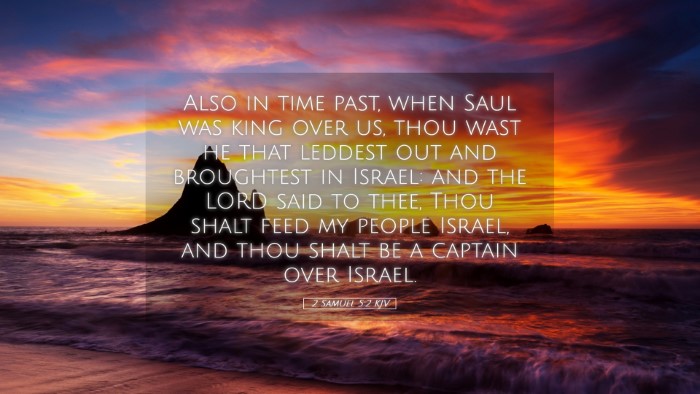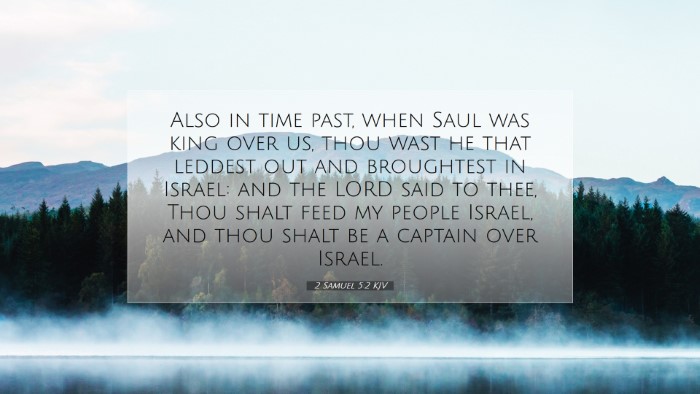Commentary on 2 Samuel 5:2
Verse Reference: 2 Samuel 5:2 - "Also in times past, when Saul was king over us, thou wast he that leddest out and broughtest in Israel: and the LORD said to thee, Thou shalt feed my people Israel, and thou shalt be a captain over Israel."
Contextual Background
The context of 2 Samuel 5:2 is critical in understanding its significance. David, having been anointed king over Judah, is now approached by the elders of Israel, acknowledging his leadership role among them. This verse highlights the transition of power from Saul to David and emphasizes David's previous leadership during Saul's reign, setting the stage for his recognition as the rightful king over all Israel.
Theological Significance
This verse points toward several theological themes, including divine election, leadership, and the fulfillment of God's promises. David's journey to kingship is seen not merely as a political matter but as a divinely orchestrated event.
1. The Divine Election of David
The elders of Israel acknowledge the Lord's choice of David as the leader. Albert Barnes notes that this divine selection differentiates David’s leadership from Saul’s, emphasizing that true leadership in Israel must align with God’s will.
2. David’s Leadership Qualities
- Experience: David had proven himself as both a warrior and a shepherd before this verse, qualities vital for the unity and security of Israel.
- Divine Commission: The reference to David feeding the people links to the shepherd-like characteristics expected of a king (Adam Clarke).
- Public Recognition: The elders of Israel's appeal reflects a collective acknowledgment of David’s suitability, suggesting a movement of unified leadership.
Commentary Insights
Matthew Henry emphasizes that David's leadership was recognized during Saul’s reign; he was the one who led the people when they faced adversities. This verse reinforces the idea of a leader being recognized not only by position but by actions and responsibilities taken upon himself.
Historical Context
The historical backdrop of this verse is essential for understanding the transition from Saul’s kingship to David’s. Saul’s reign was troubled, filled with conflict, jealousy, and disobedience to God. In contrast, David represents a new beginning for Israel, one that is marked by divine favor and the restoration of the nation.
The Role of the King
David is referred to as a captain or shepherd of Israel. Adam Clarke points out that this term signifies responsibility among the people, where David is expected to nurture, guide, and protect Israel. This is consistent with the biblical model of leadership where servant-leader dynamics are upheld.
Application for Today
This verse serves as an important reminder for leaders within the church and society today. They are called not just to wield authority, but to embody the qualities of a good shepherd, caring for those under their leadership.
Points for Reflection:
- Leadership should be recognized by the people based on evidence of God's calling and personal integrity.
- The responsibilities of leadership demand a commitment to guide and protect those for whom one is responsible.
- There should be a reliance on God's direction in the decision-making processes of leaders.
Conclusion
In 2 Samuel 5:2, we witness the critical moment of recognition of David’s leadership, foreshadowing the unity of Israel under his kingship. The lyrical language of this verse captures the essence of covenantal leadership, informed not just by human recognition but also by divine appointment. As David prepares to take up the mantle of leadership over all Israel, we are reminded of the importance of aligning one’s leadership with God’s purposes.
This passage invites all who read it—pastors, students, scholars, and laypeople—to reflect on the qualities of leadership within their own communities and the need for divine guidance in fulfilling God's plans for His people.


